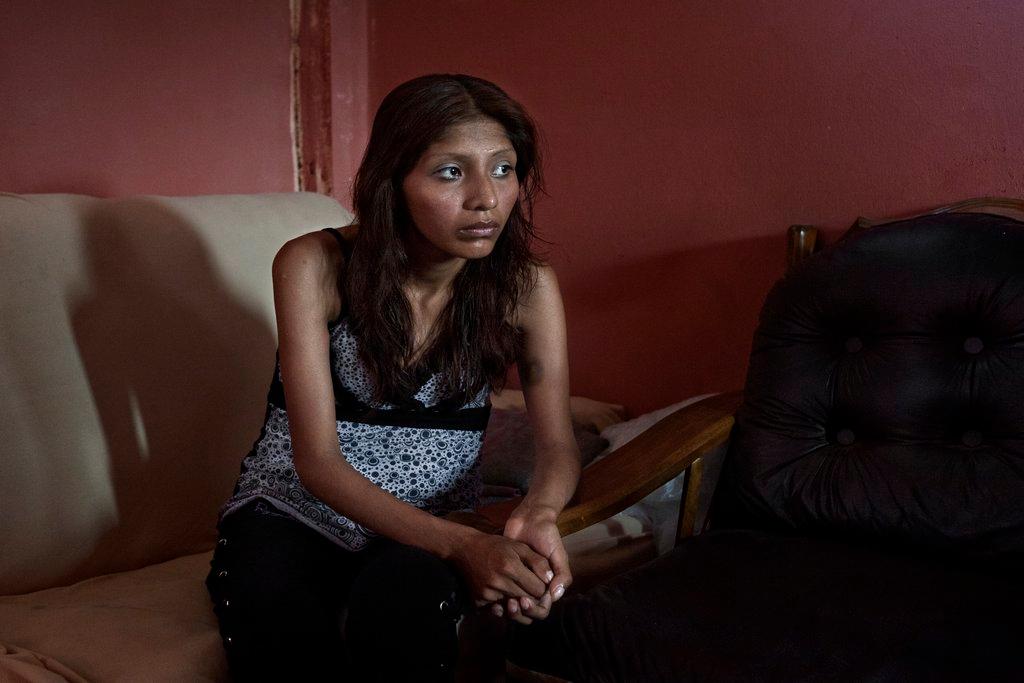A determined TB nurse, and the impact on a young mother
Melissa Vargas, 23, a mother of two, came down with multi-drug resistant TB last year. Soon after beginning treatment, she lost her will to live. But thanks to continuing treatment and the actions of a nurse, Ruth Espinoza, she has regained her health and now is thinking of going back to school.
LIMA, Peru – The young mother wanted to die.
She had multi-drug resistant tuberculosis, or MDR-TB. The TB drugs made her sick and depressed in a way she had never experienced. She couldn’t sleep. She had no energy. And she was just a few months into two years of taking this awful medication every day.
Ruth Espinoza, a nurse, had other thoughts. She weighed the situation carefully. She believed that the deep depression felt by the mother, Melissa Vargas, 23, was partially a byproduct of the TB medicine. She made an appointment for Vargas to see a psychiatrist.
The next morning, the nurse appeared at the young mother’s house. She said she was there to take her to a psychiatrist. The mother refused. The nurse demanded it. The mother went.
Today, the mother wants to live.
“Ruth has helped me so much that I agreed to go with her to see the psychiatrist, even though I didn’t want to,” Vargas told me at her in-laws’ apartment in Lima, looking back at the moment four months ago. “I feel much better now. It’s not only the medication but also the conversations that I have with the doctor. Just talking about all the things bothering me helped.”
Espinoza, who works for the non-profit group Socios En Salud, has spent the last year as much a social worker as a traditional nurse, seeing her patients in the clinics as well as in their homes, checking up on them not only to make sure they are taking their medicines but also to see how they are coping with life.
“Melissa is getting a lot stronger,” Espinoza said one day recently in the Juan Pablos II neighborhood of the capital city. “Her case shows how important it is with TB patients not just to pay attention to the physical part of it but also to the mental aspect of dealing with this disease. Her state of mind was key to making her well.”
The more she works with TB patients, Espinoza said, “the more I see that having psychological support really makes a difference.”
| |
Nurse Ruth Espinoza, who works for Socios En Salud, says that working with TB patients is as much paying attention to emotional well-being as it is to their physical health. |
The difficulties of the job
Is there any job harder than a health worker who helps MDR- or XDR-TB patients in the developing world?
It has to be among the most challenging and difficult. The tools to fight the disease are ancient — a commonly used diagnostic for TB is more than a century old, the most recent drug developed for TB is more than 40 years old and there’s no effective TB vaccine for adults. The treatment can take two years or more.
And the job is incredibly dangerous. From 1997 to 2009, 224 health care workers in Peru contracted MDR- or XDR-TB, an average of 18 a year. I went into one clinic and talked to a TB nurse who said she stays in her position for six months; the clinic has a policy of rotating nurses out of TB care every six months to lessen the risk on any one health worker.
For the last two months, I’ve been on a three-country tour — Peru, the Philippines, and Estonia — with photographer Riccardo Venturi on the invitation of the Japanese company Otsuka Pharmaceutical to look at the human impact of drug-resistant TB and to look for innovation wherever we could find it. On this trip to Peru, during which we are acting independently, we have spent a lot of time with nurses and community health care workers to learn more about their role in curing patients of this horrible disease.
Clearly apparent was that these workers were keeping people alive in multiple ways, looking for physical and mental cues on how they could best help.
“Ruth has counseled me like she was my mother,” Vargas said, who has two boys aged five and four years old. “She always worries about my kids, and asks about them. Whenever I see Ruth, she asks about the kids.”
The importance of a caregiver
Vargas likely contracted the disease from her brother- and sister-in-law. The sister-in-law died last year from TB.
“I think the biggest reason she died was that she didn’t have the support of someone like Ruth. You need that support. You need someone to look after you,” Vargas said. “Without Ruth, I don’t know what would have happened. I know without my kids, I would have died.”
Espinoza said that her patient, who was once so weak that a doctor in a hospital told her that her case was terminal, has showed enormous strength.
“I feel good because I’ve seen a big difference in her,” Espinoza said of Vargas. “When she was very sick, I told her, ‘For your two sons, you should make this final attempt to live.’ And she did.”
The two smiled, if only slightly, at the memory. Vargas is not in completely good health. TB has eaten away more than half of her lungs. She has to move slowly at times. But she is determined, Espinoza said.
“Now, Melissa wants to study, to go to school, she wants to work,” said the nurse. “She wants to recover her life.”
